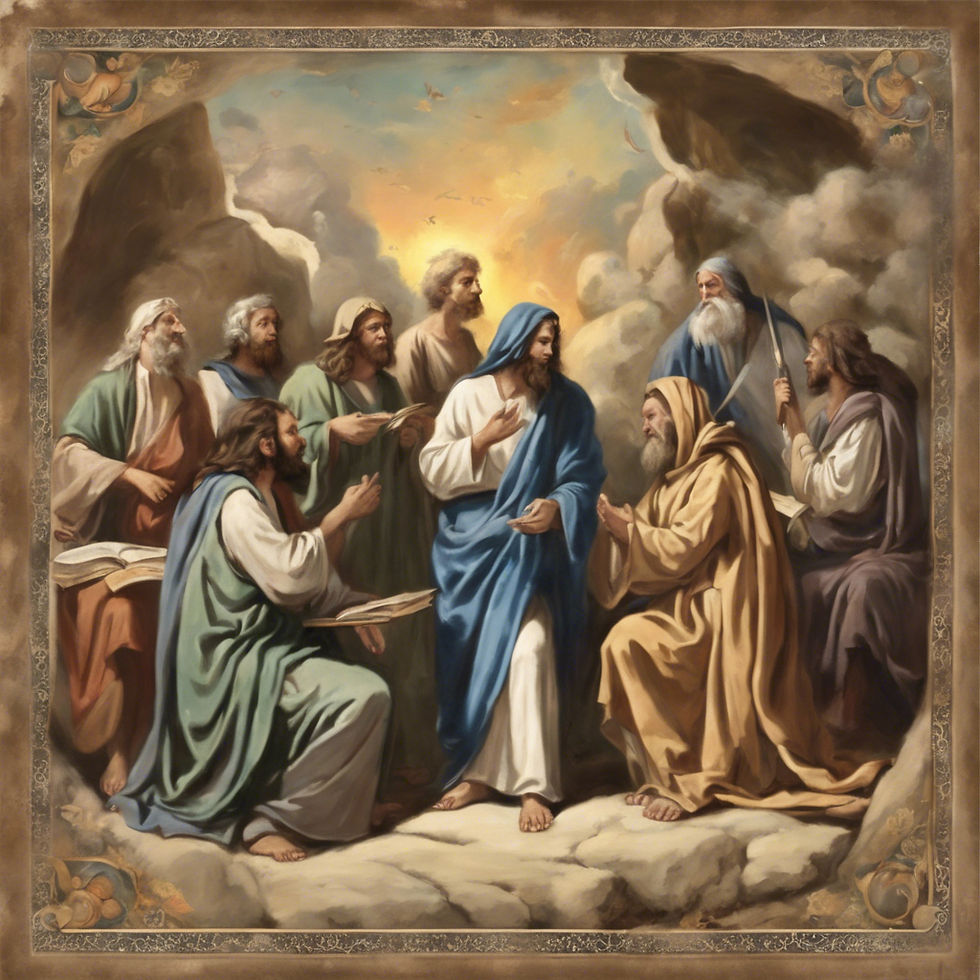Understanding Modern Prophets vs. Old Testament Prophets: A Biblical Perspective
- Tanya Thrifty T's
- Oct 30, 2024
- 3 min read

Understanding Modern Prophets vs. Old Testament Prophets: A Biblical Perspective
Throughout history, prophets have played a crucial role in conveying divine messages to humanity. In the Bible, we find a range of prophets who experienced deep relationships with God and delivered His words to various audiences. However, the nature and function of prophets have evolved from the Old Testament to modern times. This blog explores the differences between Old Testament prophets and modern prophets according to biblical teachings.
The Role of Old Testament Prophets
Old Testament prophets were often considered God’s mouthpieces, serving a critical role during pivotal moments in Israel's history. They received direct revelations from God and conveyed these messages to the people, kings, and even foreign nations. Key characteristics of Old Testament prophets include:
Divine Calling: Many Old Testament prophets, such as Moses, Isaiah, and Jeremiah, had specific moments of calling where God directly appointed them to their role. For example, God spoke to Moses through the burning bush and appointed him as the leader to free the Israelites from Egypt (Exodus 3).
Authority: The messages delivered by Old Testament prophets carried the weight of divine authority. Their prophecies were often fulfilled within their lifetimes, which served as validation of their mission. When prophets warned of impending judgment or offered hope for restoration, these messages were taken seriously.
Covenant Relationship: Old Testament prophets operated primarily within the framework of the Mosaic Covenant and spoke to Israel as a nation. They were tasked with reminding the people of their covenant obligations, often calling them back to faithfulness when they strayed.
Foretelling and Forthtelling: Prophets in the Old Testament engaged in both foretelling (predicting future events) and forthtelling (speaking God’s truth to the current situation). Prophecies ranged from immediate concerns for the nation to far-reaching predictions about the coming Messiah.
The Nature of Modern Prophets
In contrast, modern prophets—those recognized in various Christian traditions today—embody different characteristics and functions. The New Testament introduces a broader understanding of prophecy, which continues to be relevant in contemporary churches.
Spiritual Gifts: In the New Testament, particularly in 1 Corinthians 12-14, prophecy is presented as a spiritual gift given to believers for the edification of the church. Modern prophets are often seen as individuals who inspire and encourage others rather than acting as sole conveyors of divine revelation.
Community Focus: Unlike Old Testament prophets, who had a direct line to God and often spoke to an entire nation, modern prophets function within the context of local congregations or Christian communities. Their words aim to build up the body of Christ and provide guidance to fellow believers.
Subject to Scrutiny: Modern prophets operate under a different paradigm where their messages can be weighed and discerned by the church community. In 1 Thessalonians 5:20-21, Paul advises believers to test all prophecies and hold on to what is good. This accountability fosters a culture of healthy discernment among believers.
Less Predictive Emphasis: While some modern prophets may offer insights into future events, the emphasis is generally more on applying biblical truths to contemporary issues rather than making predictions about specific future occurrences. Their role often centers around proclaiming God’s love, grace, and guidance in the present moment.
Conclusion
Though the roles and functions of prophets have transformed from ancient times to the modern era, the essence of prophecy remains rooted in listening to God and conveying His truth. Old Testament prophets were often seen as divinely appointed messengers for a specific nation with profound authority, while modern prophets operate as gifted individuals within the church, focused on encouragement, edification, and communal discernment.
In exploring these differences, believers can appreciate the continuity of God’s communication through prophets while also recognizing the unique context of contemporary prophetic voices. As we navigate our lives today, being mindful of how God may still be speaking through His people can encourage and strengthen our faith journeys.
God also warned us about false prophets and teachings. This is why it's important to be able to use our discernment and compare the prophecies on how they align with God's word.


Comments